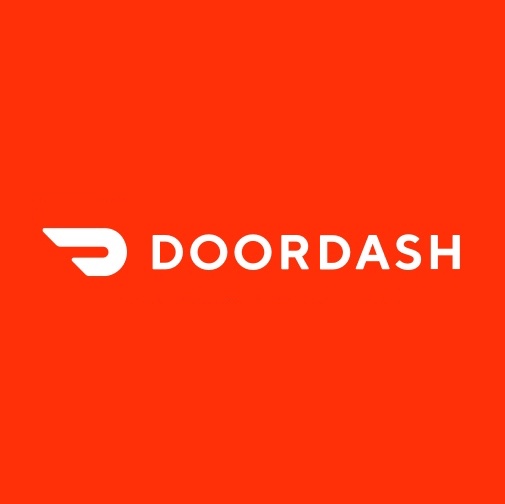 DoorDash (NYSE: DASH), a food delivery platform and service, was founded in 2013. Today, DoorDash is headquartered in San Francisco, California, where it is led by Tony Xu, who acts as the company’s CEO and Director. Consensus analyst estimates call for DoorDash to produce revenues of $2.9 billion in fiscal 2020, along with a loss per share of $1.08. In fiscal 2021, analysts foresee an improvement, with revenue estimates rising to $3.7 billion and EPS estimates at $0.15.
DoorDash (NYSE: DASH), a food delivery platform and service, was founded in 2013. Today, DoorDash is headquartered in San Francisco, California, where it is led by Tony Xu, who acts as the company’s CEO and Director. Consensus analyst estimates call for DoorDash to produce revenues of $2.9 billion in fiscal 2020, along with a loss per share of $1.08. In fiscal 2021, analysts foresee an improvement, with revenue estimates rising to $3.7 billion and EPS estimates at $0.15.
DoorDash debuted on the New York Stock Exchange on December 9th, 2020, in a 33 million Class A common stock offering, priced at $102. With all shares coming from the company, DoorDash generated close to $3.4 billion from the offering. With a pre-IPO cash balance of $1.6 billion and no debt, DoorDash possessed roughly $5 billion in cash with no debt immediately after the offering. At a recent share price of $180, DoorDash carries a market cap of approximately $57 billion.
DoorDash’s mission is to grow and empower local economies. DoorDash was founded as a merchant-first business, as the platform allows brick-and-mortar companies to thrive in an ever-growing convenience-oriented economy with changing consumer demands. This is achieved through the DoorDash Marketplace, which provides a variety of services, allowing merchants to acquire customers, deliver orders, gain access to insights and analytics, merchandise, process payments, and manage customer support.
The company’s proprietary technology enables it to optimize interactions between merchants, consumers, and delivery drivers, or Dashers, to create a seamless end-to-end experience. Every order on the Marketplace platform is analyzed by DoorDash’s machine learning algorithms to continuously improve the quality and performance of the platform. This allows the company to present personalized content to consumers by accounting for past order preferences, provides data for Dashers to maximize their earnings opportunities, and optimizes the experiences of all users on the Marketplace through increasingly intelligent and efficient logistics.
DoorDash assists merchants by catalyzing incremental sales and leveraging their fixed cost investments while establishing an online presence and broadening their reach. With DoorDash, merchants have the option of fulfilling orders through delivery, facilitated by the platform, or in-person pickup by customers. Additionally, merchants can launch promotions on the Marketplace. Merchants have produced over $19 billion in combined total sales on the Marketplace, and in 2019, experienced a 59 percent year-over-year same store sales increase on the platform. Dashers have garnered more than $7 billion combined through the Marketplace.
In addition to individual, one-off orders, DoorDash offers a membership program called DashPass where customers pay a $9.99 monthly delivery fee for unlimited deliveries from eligible merchants. While currently only available for restaurants, the company anticipates providing customers access to all of their local businesses in the future, allowing consumers to receive benefits while shopping in-store, at-home, or anywhere else.
DoorDash’s Marketplace platform has connected more than 390,000 merchants, over 18 million consumers, and more than one million Dashers throughout the United States, Canada, and Australia. In total, more than 900 million orders have been processed and completed through the platform. DoorDash has partnerships with more than 175 of the 200 largest national restaurant brands, such as McDonald’s, Chick-Fil-A, The Cheesecake Factory, Chipotle, Wingstop, and Wendy’s.
DoorDash is the largest and fastest growing local food delivery logistics firm in the United States, boasting a 50 percent United States category share and a 58 percent category share in suburban markets. Off premises consumption of restaurant meals (i.e., takeout or delivery orders from restaurants) totaled nearly $303 billion in the United States in 2019. Despite this, DoorDash generated a mere $8 billion in total orders in 2019, representing less than three percent of the total market opportunity in America.





 Peloton Interactive (NASDAQ: PTON), a high-end fitness products company, is a relatively recent addition to our Battle Road IPO Review Consumer sector coverage. Founded in 2012 and based in New York City, Peloton is expected to record revenue of $1.48 billion in its fiscal year ending June 30th 2020, along with a loss per share of $1.29. This compares to revenue of $915 million in fiscal year 2019, during which the company recorded an operating loss of $113 million, excluding depreciation expense.
Peloton Interactive (NASDAQ: PTON), a high-end fitness products company, is a relatively recent addition to our Battle Road IPO Review Consumer sector coverage. Founded in 2012 and based in New York City, Peloton is expected to record revenue of $1.48 billion in its fiscal year ending June 30th 2020, along with a loss per share of $1.29. This compares to revenue of $915 million in fiscal year 2019, during which the company recorded an operating loss of $113 million, excluding depreciation expense. .
.